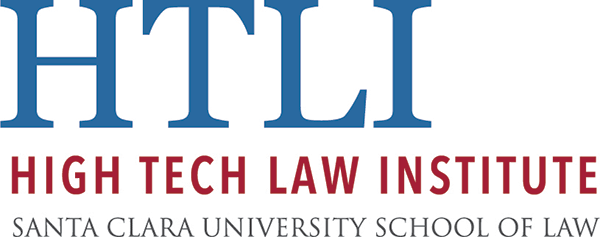Without Precedent Podcast
Without Precedent is a monthly podcast series hosted by Professor Eli Edwards of Santa Clara University School of Law and Nikki Pope, Sr. Director AI and Legal Ethics at NVIDIA. Without Precedent examines the impact of technology innovations on the law and legal practice. Edwards and Pope invite technologists, inventors, judges, academics, lawyers, and politicians to discuss how law can keep up with technological innovation.
Our goal is to post one episode each month. If there is a topic you’d like us to consider or if you’d like to appear on our podcast, please contact us.
Without Precedent is sponsored by the High Tech Law Institute. The views expressed on Without Precedent are solely the views of the participants and do not reflect the views of the High Tech Law Institute, Santa Clara Law, Santa Clara University, or NVIDIA and should not be construed as legal advice.
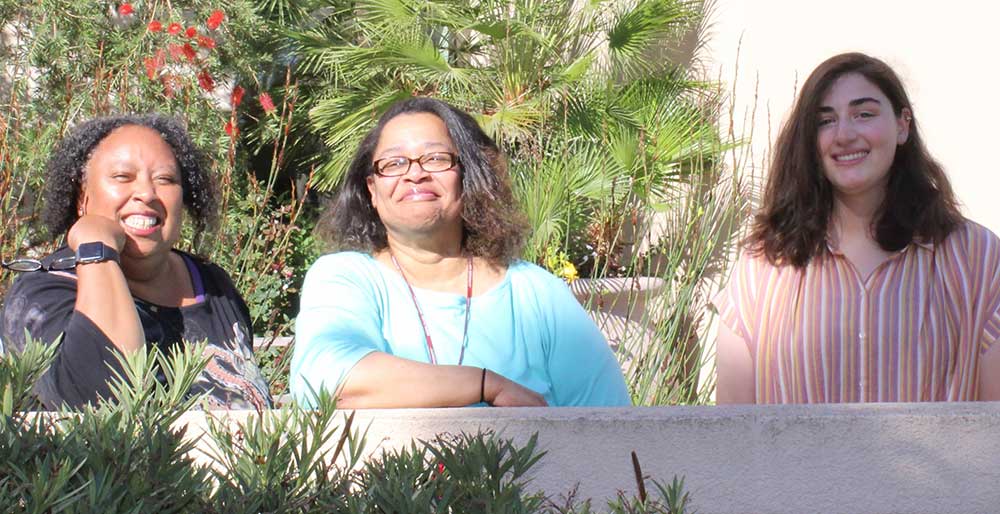
The Without Precedent team, left to right: Eli Edwards, Nikki Pope, Nicole Jacobus
Production Credits:
Producers: Eli Edwards and Nikki Pope
Editor: Aastha Chawla
Sound Engineer: Fern Silva
Music: Nicole Jacobus
Website Design: Michelle Waters
Content: Nikki Pope and Eli Edwards
Guest Bookings: Eli Edwards and Nikki Pope
Episodes:
What is “Section 230″ and Why Should We Care About It?
 Only 26 words make up Section 230 of the Communications Decency Act, but they have legislators, social media
Only 26 words make up Section 230 of the Communications Decency Act, but they have legislators, social media
companies, legal scholars, content developers, and scores of other people choosing sides in a debate about whether Section 230 should be repealed or revised. Without Precedent invited two Internet Law experts, Annette Beebe and Professor Eric Goldman, to explain the importance of Section 230 in the development of the Internet and why we should care what happens to it.
In this episode you also will learn about two new organizations dedicated to improving what we can believe and trust on the Internet – the Trust & Safety Professional Association and the Trust & Safety Foundation.
Second Chances Empathy Hackathon
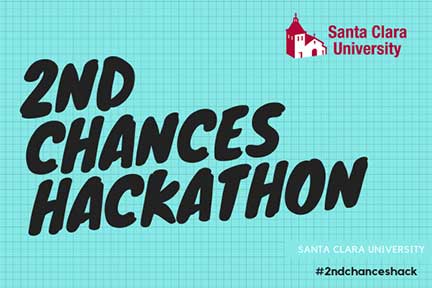 Without Precedent went on location to the Second Chances Empathy Hackathon on our home turf at Santa Clara Law. The purpose of the hackathon was to create solutions for criminal justice organizations located in Northern California (see list below). Created by Professors Colleen Chien and Laura Norris, the Hackathon brings together students and professionals in law, engineering, and business to work in teams on problems previously submitted by criminal justice organizations. We spoke with a lot of the project teams, the organizations, the organizers, and special guests to bring you this episode.
Without Precedent went on location to the Second Chances Empathy Hackathon on our home turf at Santa Clara Law. The purpose of the hackathon was to create solutions for criminal justice organizations located in Northern California (see list below). Created by Professors Colleen Chien and Laura Norris, the Hackathon brings together students and professionals in law, engineering, and business to work in teams on problems previously submitted by criminal justice organizations. We spoke with a lot of the project teams, the organizations, the organizers, and special guests to bring you this episode.
If you’d like to get involved with the next hackathon, email the organizers at EmpathyHack@scu.edu. They are looking for partners with problems to solve, teams to solve those problems, and sponsors to help feed and reward the whole crew!
Participating Organizations
- Yolo County Public Defender’s Office
- National Justice Impact Bar Association
- Justice Collaborative
- Safety and Justice: County Reentry Service Providers
- Northern California Innocence Project
- UnCommon Law
- Second Chances Gap Initiative
Other Resources
- “The Second Chance Gap,” Colleen Chien, Michigan Law Review, October 2019
- Code for America – Expands Clear My Record to California’s 58 Counties
Kenton Brice: VR in Legal Training & Education
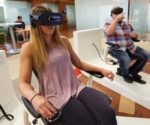 Without Precedent welcomes Kenton Brice, Director of Technology Innovation at Oklahoma University College of Law to talk about how he is incorporating virtual reality in the law school curriculum and other technology initiatives at the law school.
Without Precedent welcomes Kenton Brice, Director of Technology Innovation at Oklahoma University College of Law to talk about how he is incorporating virtual reality in the law school curriculum and other technology initiatives at the law school.
In 2014, OU Law became the first US law school to launch a comprehensive college-wide Digital Initiative. Learn more about it at the OU Law website.
Other Resources and Opinions:
“How Tech Is Helping Courtroom Newbies Become Virtual Pros,” Brandon Lowrey, Law360, July 28, 2019
“Curriculum Comes Alive: How Two Law Schools Use Virtual Reality in the Classroom,” Zach Warren, Law.com, July 14, 2019
“How are law schools using virtual reality tools in classrooms?” Anna Stolley Persky, ABA Journal, January 1, 2019
“Law schools dive into virtual reality experiences for their students,” Gerardo Alvarez, March 9, 2018
California State Bar (CalBar) Task Force on Access Through Innovation of Legal Services
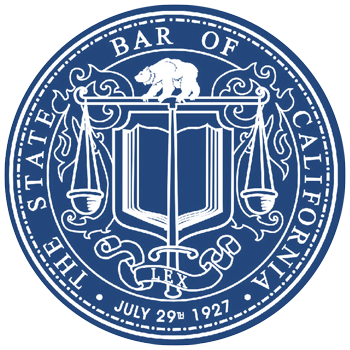 Without Precedent welcomes Joanna Mendoza, a CalBar trustee, and Mary Grace Guzmán, an attorney who represents clients before CalBar. The CalBar Task Force has been looking into ways to increase the availability of legal services for underserved communities in California. Our guests discuss the pros and cons of various options being considered.
Without Precedent welcomes Joanna Mendoza, a CalBar trustee, and Mary Grace Guzmán, an attorney who represents clients before CalBar. The CalBar Task Force has been looking into ways to increase the availability of legal services for underserved communities in California. Our guests discuss the pros and cons of various options being considered.
Learn more about the Task Force’s work at the CalBar website. CalBar is soliciting public comments on possible reforms until Monday, September 23, 2019.
Other Resources and Opinions:
“Legal Market Landscape Report,” William D. Henderson, Commissioned by the State Bar of California, July 2018
“Nonlawyers could offer legal advice and partly own law firms under these California proposals,” Debra Cassens Weiss, ABA Journal, July 15, 2019
“California Task Force to Vote This Week on Sweeping Changes to Legal Services Delivery,” Bob Ambrogi, Above The Law, June 24, 2019
“I Complained. I volunteered. I’m not disappointed.” Heather Morse, The Legal Watercooler Blog, May 13, 2019
